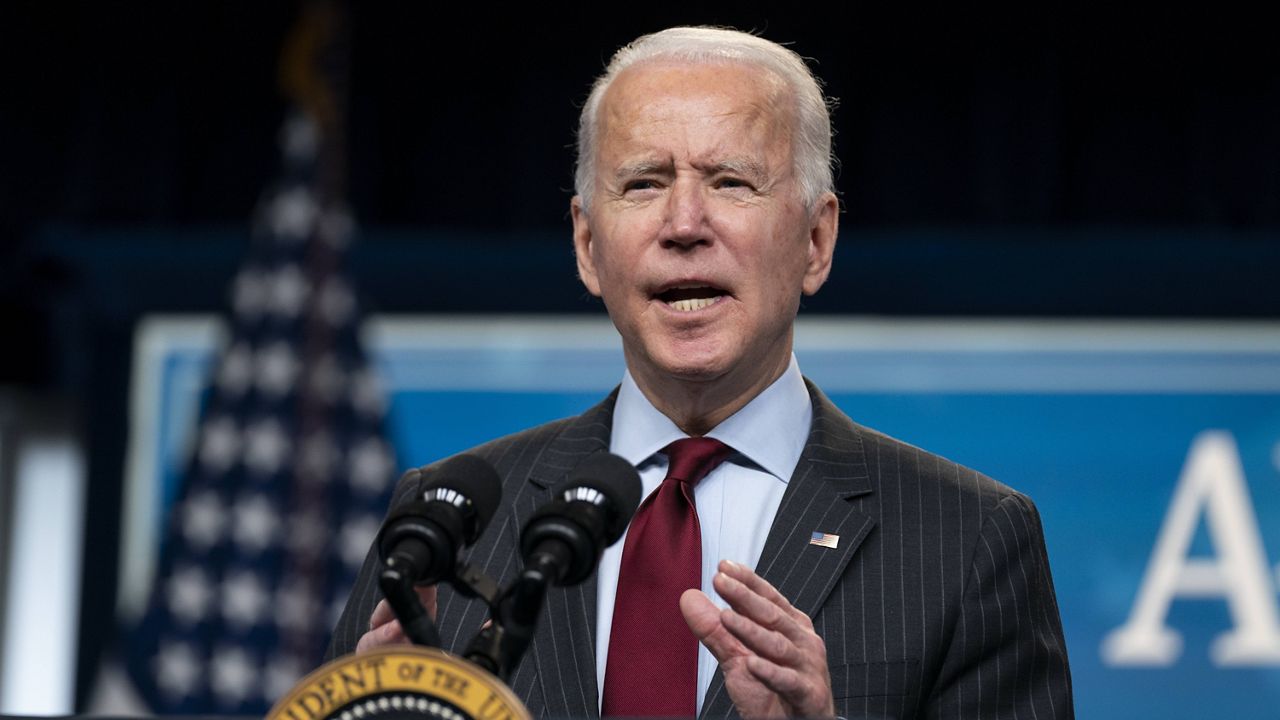WASHINGTON — Calling America's small businesses “the engines of our economic progress,” President Joe Biden on Monday announced changes to the Payroll Protection Program that aim to help the smallest companies struggling to stay afloat during the coronavirus pandemic.
What You Need To Know
- President Joe Biden on Monday announced changes to the Payroll Protection Program that aim to help the smallest companies struggling to stay afloat during the coronavirus pandemic
- Biden announced that the federal government on Wednesday will open a two-week window in which only businesses with fewer than 20 employees can apply for forgivable loans
- The president's team is also carving out $1 billion to direct toward sole proprietors, such as home contractors and beauticians, the majority of which are owned by women and people of color
- Biden said “mom-and-pop businesses got muscled out of the way by bigger companies that jumped in front of the line" during the Trump administration
Biden announced that the federal government on Wednesday will open a two-week window in which only businesses with fewer than 20 employees can apply for forgivable loans.
Biden's team is also carving out $1 billion to direct toward sole proprietors, such as home contractors and beauticians, the majority of which are owned by women and people of color.
Other efforts will remove a prohibition on lending to a company with at least 20% ownership by a person arrested or convicted for a nonfraud felony in the prior year, as well as allowing those behind on their federal student loans to seek relief through the program. The administration is also clarifying that noncitizen legal residents can apply to the program.
Biden said more than 400,000 small businesses have shuttered during the pandemic and millions more are “hanging by a thread.”
“They’re the glue and the heart and soul of our communities, but they’re getting crushed,” he said.
“It’s hurting Black, Latino and Asian American communities the hardest,” Biden added. “Walk down any Main Street and you see it — empty storefronts, goodbye signs hanging in the windows.”
First rolled out in the earliest days of the coronavirus pandemic and renewed in December, the program was meant to help keep Americans employed during the economic downturn. It allows small and mid-size businesses suffering loss of revenue to access federal loans, which are forgivable if 60% of the loan is spent on payroll and the balance on other qualified expenses.
The Biden effort is aimed at correcting disparities in how the program was administered by the Trump administration. Biden said “mom-and-pop businesses got muscled out of the way by bigger companies that jumped in front of the line.”
Data from the Paycheck Protection Program released Dec. 1 and analyzed by The Associated Press show that many minority owners desperate for a relief loan didn’t receive one until the PPP’s last few weeks while many more white business owners were able to get loans earlier in the program.
“The Paycheck Protection Program is a bipartisan effort,” Biden said. “Democrats and Republicans helped pass it, but Democrats and Republicans have also voiced concerns about improving it. With their input, that’s what we’re doing in our administration — improving it.
“We will ensure every dollar is spent well. These changes will bring much-needed long-overdue help to small businesses who really need help staying open, maintaining jobs and making ends meet.”
The program, which began April 3 and ended Aug. 8 and handed out 5.2 million loans worth $525 billion, helped many companies stay in business when government measures to control the coronavirus forced many to shut down or operate at a diminished capacity.
The latest PPP, which began Jan. 11 and runs through the end of March, has already paid out $133.5 billion in loans — about half of the $284 billion allocated by Congress — with an average loan under $74,000.
A further renewal of the program is not included in Biden's $1.9 trillion American Rescue Plan, which he hopes Congress will pass in the coming weeks. That package, however, proposes $50 billion to support the hardest-hit smallest businesses.



